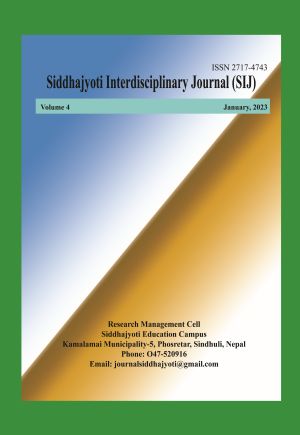An Indigenous Approach of Educational Leadership in Magar Community
DOI:
https://doi.org/10.3126/sij.v4i1.54138Keywords:
Educational leadership, Bheja, Dhukurya, and indigenous cultureAbstract
This article is based on ethnographic study of the indigenous approach to educational leadership in formal and informal schooling in the Magar Community of Palpa. The study led ahead through a qualitative ethnographic study design that follows an interpretive approach. The population for this research was selected on the basis of judgmental sampling design. The tools we used for data collection was an interview, observation, and review of secondary source of data. We interviewed the three leaders of three Bhejas known also as Dhukuryas to understand how they provide educational leadership to their people in the modern context. The study found that the Magar community of people living in these parts of the country since a thousand years ago have their distinct, popular way of socio-cultural education leadership. This also concluded that the unique cultural leadership of these people is democratic, participative, honorary, based on system and values, and united. Chiefly, this study reports that the Magar community, as the indigenous people of Nepal have been practicing educational leadership culture that supports a new generation of people learning the culture, religion, language, society, and formal education management.
Downloads
Downloads
Published
How to Cite
Issue
Section
License
© Siddhajyoti Education Campus, Phosretar, Sindhuli

